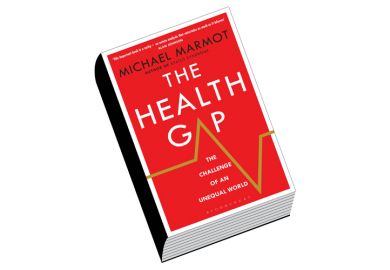Apparently, there are several smartphone apps on the market that monitor the frequency of thrusts during sexual intercourse, and also web-based sexual league tables through which men can compare their performance with other similarly romantic souls. I mention this not only because it jumped out at me from The Quantified Self, but because it illustrates a more general and worrying aspect of the present self-tracking craze. What it is to be “normal” is being set by the creators of such technology, and they are, according to sociologist Deborah Lupton, predominantly “white, well-paid, heterosexual and living in the Global North”. Consequently, a large number of people are being set up to fail – and an app allowing women to pool information so they can avoid the world’s megathrusters is unlikely to be appearing soon.
This is just one of the concerns that Lupton airs in her impressive and comprehensive, although academic, overview of the way in which people are tracking their lives using digital technologies to obtain “self knowledge through numbers”. She leaves no stone unturned as she considers everything from government and corporate surveillance through uploaded data to the borderline narcissism of digital fitness-tracking bands. “You can look up my iPhone and say, ‘Oh, over the last week I walked 80,000 steps, my weight’s 170, my percentage of body fat 8 per cent’,” says a US medic. “Do I even exist without my Fitbit?” says a woman quoted in The Guardian. “Without data, am I dead?”
I, of course, am not like any of these people and would never indulge in such vain self-monitoring. Unfortunately, Lupton points out that self-monitoring is the essence of checking my Twitter followership. In my defence, however, I should say that I never check more frequently than every 10 minutes. I am not that sad.
Another problem with self-tracking devices highlighted by Lupton is that they subtly sell the idea that we are responsible for our situation in life and have the power to change it. “Life success, wellbeing, productivity and good health are portrayed as the outcome of individuals’ work on themselves,” says Lupton. This fails to recognise the “social determinants” that hobble people’s lives such as low income and poverty, racism, sexism, belonging to a minority ethnic group and so on. It is an idea that has its most damaging expression in the “poor are poor because they make poor life choices” mantra, trotted out shockingly not so long ago on BBC Radio 4’s Today Programme, although comprehensively demolished by epidemiologist Michael Marmot in The Health Gap: The Challenge of an Unequal World.
All is not bad, however, in the world of digital self-monitoring. Used wisely, says Lupton, it can enhance people’s lives, motivating them to get fit or to monitor vital biological signs such as blood sugar levels for those with diabetes. One wonders, however, where all this digital recording of more and more of ourselves is going. “You are your data” is one of Lupton’s chapter headings. How long before we can record the state of each of our 100 billion neurons? Will our digital descendants – uploaded into who knows what – look back at the beginning of the 21st century as the moment when, like fish venturing from the water on to the land, humans took the first steps from the world of wetware into the limitless world of software?
Marcus Chown, formerly a radio astronomer at the California Institute of Technology, is author of What a Wonderful World: Life, the Universe and Everything in a Nutshell (2014). He tweets at @marcuschown.
The Quantified Self
By Deborah Lupton
Polity, 240pp, £50.00 and £15.99
ISBN 9781509500598 and 0604
Published 25 March 2016
POSTSCRIPT:
Print headline: How deep is your love? We’ve data
Register to continue
Why register?
- Registration is free and only takes a moment
- Once registered, you can read 3 articles a month
- Sign up for our newsletter
Subscribe
Or subscribe for unlimited access to:
- Unlimited access to news, views, insights & reviews
- Digital editions
- Digital access to THE’s university and college rankings analysis
Already registered or a current subscriber?





